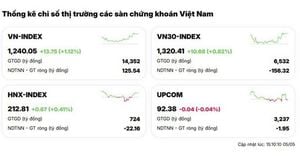'La infiltrada': A Critical Examination of Spanish Film's Take on Terrorism
The Spanish film 'La infiltrada,' directed by Arantxa Echevarría, has quickly surged to the forefront of cinematic conversation after winning two prestigious Goya Awards, including Best Film and Best Actress for Caroline Yuste. The movie, which began streaming on Movistar, narrates the harrowing true story of Arantxa Berradre, the first female agent to infiltrate the terrorist group ETA during the 1990s, exposing the dark realities of this tumultuous period.
Set against the backdrop of San Sebastián, the film captures the suffocative atmosphere of fear and violence during the years of ETA's activity. Mónica Marín, portrayed by Yuste, assumes the role of Berradre, immersing herself for nearly eight years within the inner circles of ETA, all the meanwhile carrying the burden of assumed identities and trepidation associated with betrayal. Her story, far from being merely one of the fighter versus the foe, paints a broad picture of societal division and personal sacrifice.
Berradre's infiltration, named ‘Operation Donosti,’ aimed to dismantle one of ETA’s most infamous units, set against the political and emotional currents of her environment. The review mentions how the film not only serves as action but also incorporates elements of psychological tension, showcasing Mónica's internal struggles—her yearning for familial ties and her commitment to her mission as she lived among those whom she was meant to surveil.
Critics have acknowledged laudable aspects of the film, particularly how it endeavors to shed light on the often-ignored history of female participation within law enforcement and anti-terrorism efforts. According to The Guardian, the film succeeds by fostering empathy with its protagonist through moments of vulnerability—her tears, fears, and the small comforts she seeks, such as the companionship of her cat, Sua.
Notably, María Luisa Gutiérrez, the film's producer, made headlines with her heartfelt acceptance speech at the Goya ceremony, where she honored victims of terrorism and emphasized the importance of preserving historical memory. Gutiérrez’s reflections extend the film's narrative beyond the screen, sparking discussions on how society reconciles its past with current realities.
Despite its acclaim, 'La infiltrada' has not escaped criticism. Some reviews point out its pacing issues, particularly concerning action sequences, with certain viewers desiring more high-octane moments reflective of classic spy thrillers. According to El País, the screenplay might have benefited from broader exploration of the political backdrop to enrich viewers' comprehension of the stakes involved. The critique aligns with sentiments among viewers who sometimes seek traditional thriller mechanisms to engage with narrative tension.
Yet, it's the innovative filming perspective and character depth where 'La infiltrada' evidently shines. Echevarría’s style invites audiences to reflect on both the broad historical canvass along with the intimate stories of courage and connivance embodied by individuals like Mónica Marín—a courageous young woman forging ambiguous paths amid the deepest shadows of terror.
With many reviews likening it to previous performances by classic political thrillers, 'La infiltrada' has started topping box office charts, soon closing to be the highest-grossing female-directed Spanish film ever. Critics from Variety have mused about the film's impact and relevance, proclaiming it as not only significant politically but also potent as storytelling.
Another highlight from press accounts reveals the film's ability to inspire discussions on contemporary socio-political issues as well as embodying the scars left behind from Spain’s tumultuous past, leading to explosive conversations revolving around justice, memory, and identity. While the age-old struggle between freedom and oppression plays out through the reels, 'La infiltrada' has firmly claimed its position within Spain's cinematic history as both a compelling drama and a significant homage to the oft-forgotten agents of the past.
Having captured the attention of over 1.34 million viewers, 'La infiltrada' continues to resonate, promising to keep conversations about terrorism, reconciliation, and the role of women alive long after the credits roll. The questions it raises about heroic versus fearful human experiences add layers of complexity to the narrative, making cinema serve as both reflective to history and predicting patterns—providing thoughtful engagement beyond entertainment.



